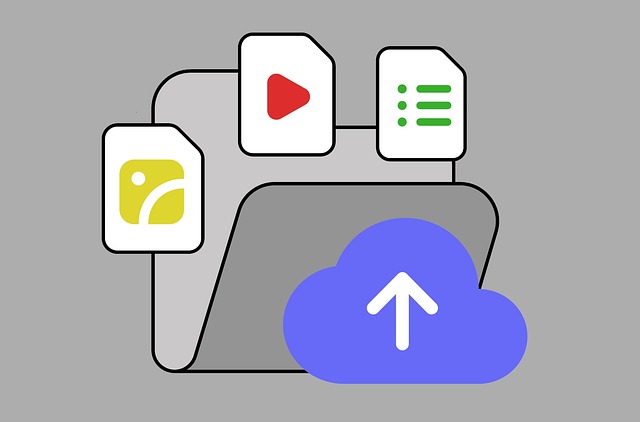Data loss can disrupt operations and damage trust. Managed backup services offer automated, expert-led protection—reducing IT workloads while ensuring secure, offsite data storage. These solutions deliver reliable recovery, compliance support, and cost efficiency, helping businesses safeguard vital information against evolving cyber threats and system failures. Discover how outsourcing backup management transforms data security into a seamless, scalable advantage.
Meeting Business Data Protection Needs with Managed Backup Services
Today’s organizations operate under constant threat from ransomware, hardware failure, and unexpected disasters, demanding ever-stronger data protection. With Managed Backup Services for Businesses, companies can automate the backup process, strengthen security, and tap into professional expertise—freeing internal IT teams to focus on innovation rather than firefighting.
Also to read : Master a-level maths online: transform your grades today
The core aim of managed backup is straightforward: safeguard critical data by outsourcing storage, monitoring, and recoverability to trusted specialists. These services implement regular automated backups and modern backup data encryption methods, reducing the risk of human error and unauthorized access. Offsite copies kept in secure, remote locations help ensure business continuity, even if on-premises systems are compromised or destroyed.
For businesses, the major drivers fueling adoption are increasing compliance demands—including GDPR and industry regulations—escalating cyber threats, and the high costs linked with managing on-premises infrastructure. Internal IT often struggles to juggle daily support with complex backup administration; managed backup solutions remove this load, unifying cloud and physical storage and offering 24/7 support.
Also to discover : What role does cybersecurity education play in UK schools?
The benefits extend beyond security and compliance. With cost optimization, variable pricing, and backup scalability options, backup as a service provides flexible pay-as-you-go models, sidestepping large capital investments in hardware. Bulletproof monitoring and swift restore capabilities reduce costly downtime, ensuring fast access to data when it matters most.
Essential Features, Benefits, and Leading Providers of Managed Backup
Key features of managed backup: automation, offsite redundancy, encryption, monitoring, support, and recovery
Managed backup and disaster recovery solutions rely on crucial features that protect data and streamline recovery. Backup automation techniques are at the core, reducing manual effort and human error through automated schedules. Cloud managed backup solutions utilize offsite backup management for redundancy, storing copies in secure, physically separate locations for enhanced risk mitigation. Encryption—both at rest and in transit—safeguards sensitive information from unauthorized access, forming a pillar of backup data encryption methods.
Real-time backup monitoring and reporting enables quick identification of failed jobs or potential risks, with dashboards and alerts ensuring everything is up to date. Responsive support and recovery features provide hands-on guidance during data loss events, accelerating restoration from default backup automation techniques or disaster recovery and backup automation tactics. Scalable infrastructure adapts to organizational growth, meeting new requirements easily as backup as a service examples often demonstrate.
These integrated elements underpin robust backup and disaster recovery solutions, providing confidence and operational resilience for evolving business demands. Cloud managed backup solutions, together with strong encryption and monitoring, deliver agility and powerful protection beyond traditional approaches.
How Managed Backup Services Ensure Compliance, Reliability, and Business Continuity
Ensuring compliance: GDPR, HIPAA, PCI DSS, data retention rules, and audit-ready reporting
Backup compliance and regulations require robust enforcement to protect sensitive information. Managed backup services support adherence to GDPR, HIPAA, and PCI DSS through defined backup retention policies and automated recordkeeping. Backup for regulated industries often demands audit-ready reporting—this is achieved via backup health checks and monitoring dashboards. Secure cloud backup disaster recovery planning ensures data is stored in geographically separate locations, further supporting compliance and regulatory reporting obligations.
Reliability and uptime: monitoring, SLAs, immutable backups against ransomware, and regular testing
Backup reliability and uptime are enforced with continuous backup health checks and automated alerts within backup monitoring dashboards. Providers utilize backup service level agreements to define stringent uptime targets and clear recovery time objectives (RTO/RPO). Backup and disaster recovery solutions increasingly offer immutable backups, preventing ransomware from encrypting saved files. Regular backup and restore best practices validate restore processes, ensuring systems are always recoverable no matter the threat.
Real-world case studies: recovery, cost optimization, and SMB experiences
Managed services often demonstrate backup and disaster recovery solutions enabling SMBs to recover rapidly from disasters and cyberattacks. By implementing cloud backup disaster recovery planning and regular backup health checks, businesses have minimized downtime. Flexible retention policies and monitoring dashboards contribute to backup cost optimization and operational resilience.










